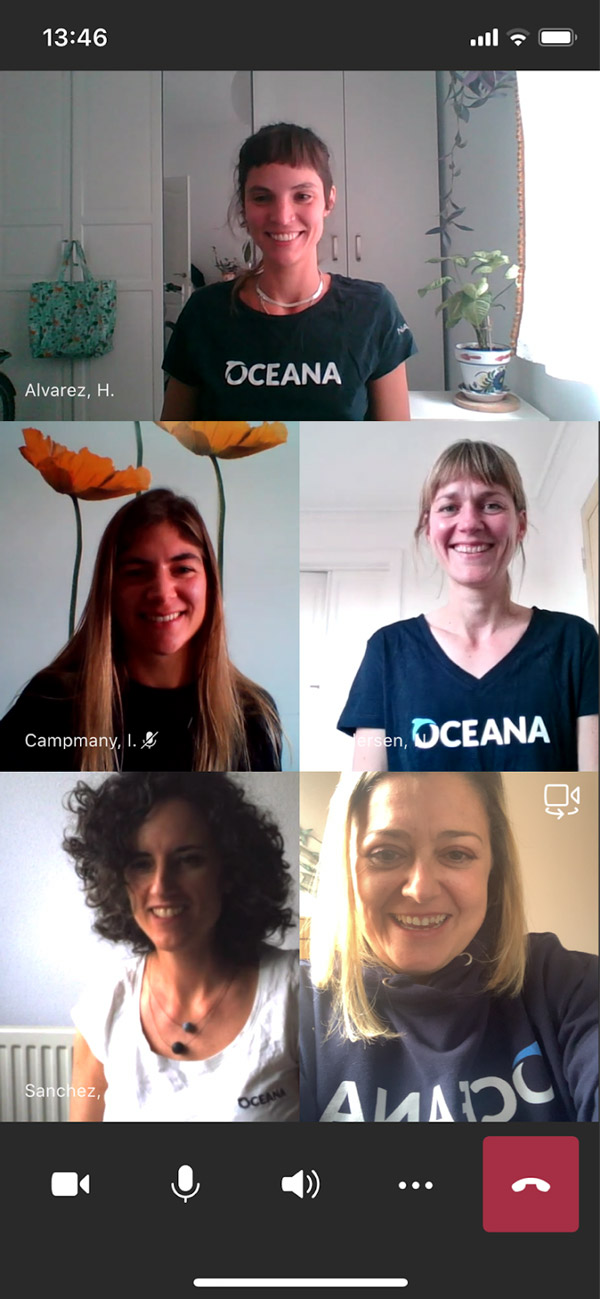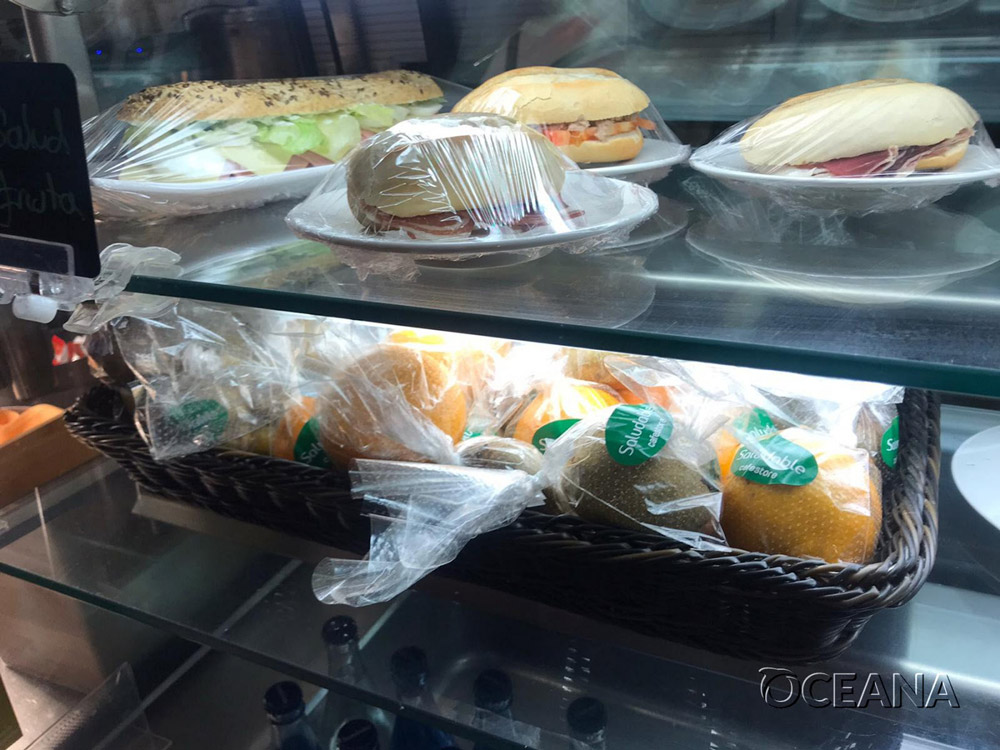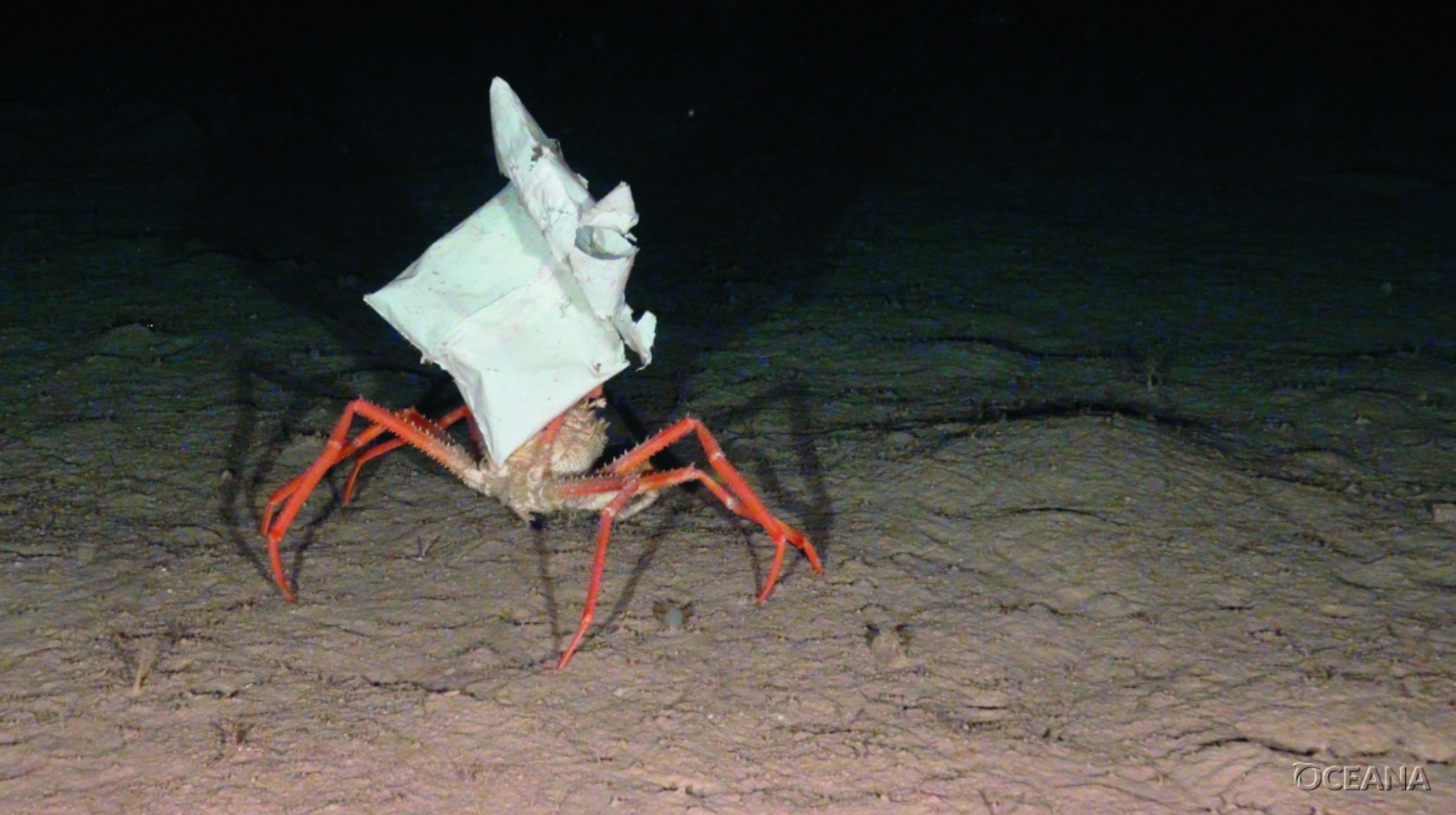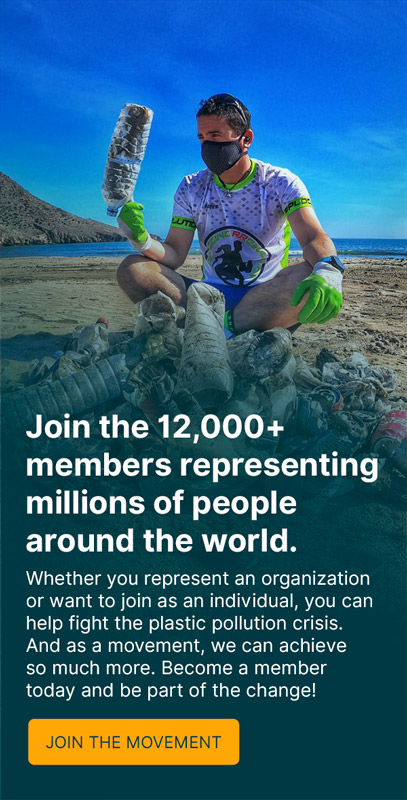Meet the Oceana Europe Team!
Oceana is the largest international advocacy organisation dedicated solely to ocean conservation. Our plastics campaign has three pillars in the EU: advocating for ambitious legislation, urging stakeholders to curb SUPs, and unveiling the impact of plastics in marine ecosystems.
Our team members started working for Oceana between 2007 and 2020. Helena, Irene, Nati and Pilar are based in Spain, and Naja lives in Denmark - our two target countries for our campaigns. Part of our team allocates all of their efforts to keep single-use plastics from reaching the ocean, and the others also work for other campaigns within Oceana, so we have a good mix!

Why is plastic pollution an important issue for your organisation? What’s your story?
Oceana has undertaken at-sea expeditions for the past fifteen years, and we have recorded pollution virtually in every dive. Over time, we realised that marine litter was a growing problem. Very often, the areas with a higher biodiversity are also the places where plastics concentrate. This is specially the case of the deep sea, that is home to very vulnerable species yet it is often overlooked in protection plans. We have witnessed how plastics are changing the seascape and the behaviour of marine species, and jeopardising conservation wins. So earlier this year Oceana finally launched a plastics campaign in Europe!
Tell us more about your ongoing campaigns.
Marine litter was one of the main inspiration sources for the SUP Directive, and it is also the basis of our policy work (see for example our recommendations for Spain). Plastics last much longer in the sea than on land, and especially in deeper areas. We have started to release findings from our expeditions, beginning with a report on seamounts, underwater canyons and other submarine features, and a video focusing on Mediterranean depths. We believe that it is important to unveil the hidden impact of plastics. We will release more reports in the coming months, and there is also a toolkit to remove plastics from workplaces in the making.
When did your organisation become a core member of BFFP? What does it mean for your organisation to be part of the BFFP movement?
Oceana sits in the Steering Committee of BFFP - Jackie Savitz, Chief Policy Officer for North America, is our representative. We participated in the discussions that led to the formation of BFFP and we were part of the group that designed the initial strategy and convened the first global meeting in Tagaytay. Oceana’s participation in BFFP allows us to engage in the most powerful international force pushing back on the expansion of plastics production from nearly every country in the world, and to ensure that the focus on solutions doesn’t stray from the need to reduce plastics at the source. Preventing the success of industry greenwashing means that we can better protect our oceans.
What is the most ridiculous plastic product or packaging that you have seen?
One of the most shocking images are pieces of fruit, like oranges or bananas, wrapped in plastic. We saw them in the cafeteria of the Spanish Congress, together with dozens of other SUPs: food containers for salads, single portions of oil and dressings, cutlery, stirrers, plastic cups in several places of the building, etcetera. Taking into account that we are just in the middle of the process to transpose the SUP Directive, lawmakers should lead by example!

What do you find shocking in the plastic waste landscape that you think everybody should know about?
Marine plastic pollution began to be on the political agenda when citizens realised how dirty beaches were. This sad reality has inspired clean-ups and prompted politicians to draft legislation, but it is the tip of the iceberg. Some scientists say that 99% of plastic marine litter is not visible. Plastic is already in the sediment, and the deepest parts of the ocean are acting as sinks or “plastic traps”. The fact that we don’t see it doesn’t mean that it’s not there - this is the archaeological legacy of our generation.
Thank you to Natividad Sánchez, Campaign Director at Oceana Europe, for taking the time to answer these questions.



